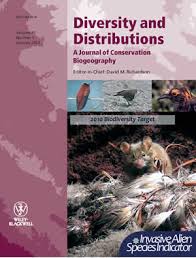 Last March, we reported on the retraction of a 2017 paper in Stem Cell Reports by Kohei Yamamizu and colleagues for widespread fabrication of figures. Turns out the problems were at least five years older than that.
Last March, we reported on the retraction of a 2017 paper in Stem Cell Reports by Kohei Yamamizu and colleagues for widespread fabrication of figures. Turns out the problems were at least five years older than that.
Yamamizu had received a pink slip from his institution, the Center for iPS Cell Research and Application (CiRA), which had put the blame for the misconduct squarely on his shoulders. (The director of the institute, Nobel winner Shinya Yamanaka, also took some of the blame in a public statement in which he said he bore “a strong responsibility for not having prevented research misconduct at our institute.”)
Yamamizu has a new retraction, but this time’s a bit different. Here’s the notice for the paper, “Protein Kinase A Determines Timing of Early Differentiation through Epigenetic Regulation with G9,” which appeared in Cell Stem Cell in June 2012 (Yamanaka was not a co-author on either study). Although the statement acknowledges the internal investigation, it doesn’t mention misconduct or name Yamamizu: Continue reading Japanese stem cell fraud leads to a new retraction



 A leading journal in ecology and evolution is going through an evolution of its own, following the resignation of its editor in chief and more than half of its editorial board.
A leading journal in ecology and evolution is going through an evolution of its own, following the resignation of its editor in chief and more than half of its editorial board. As we’re fond of repeating, sunlight is the best disinfectant. Which doesn’t jibe with the findings in an eye-catching 2018 paper that found people were less fearful of catching a contagious illness if they were in a dark room or were wearing sunglasses.
As we’re fond of repeating, sunlight is the best disinfectant. Which doesn’t jibe with the findings in an eye-catching 2018 paper that found people were less fearful of catching a contagious illness if they were in a dark room or were wearing sunglasses. 


